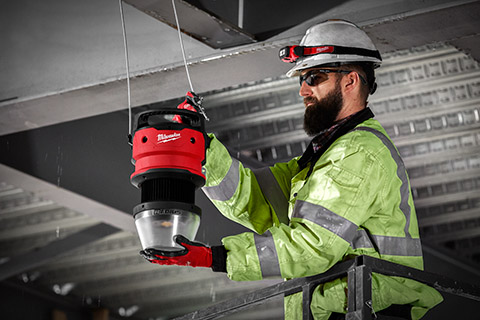Whenever you do anything related to marketing, you’ll want the results to shine through. You’ve put in the work to get people on board or to get more eyes on your work, so you’ll want to make sure that everything bears fruit. The fact is that it’s a skill and something that should be worked Read more
Whats New

Whenever you do anything related to marketing, you’ll want the results to shine through. You’ve put in the work to get people on board or to get more eyes on your work, so you’ll want to make sure that everything bears fruit. The fact is that it’s a skill and something that should be worked on. Just because you spend time doing something, it doesn’t mean you’re going to get what you want all of the time.
When you post content online, you have to do it in such a way that it gets people interested. If you are pretty mundane or inconsistent, you’re not going to get the results. Here are a few things you can do to make sure your content will gather the interaction you desire:

Plan Out The Posts And Updates You Make
Don’t just post anything at any time. Just like your business plan, you’ll need to make sure you have a sort of content calendar. Knowing exactly when to post will allow you to get the perfect results. You have to take into account who you’re posting for and what they’ll be doing at certain times of the day/week, for instance.
Work Together With Companies That Specialize In This Stuff
When you need to up your numbers and gather more attention, you can utilize all kinds of different techniques. Unfortunately, you probably won’t be able to execute them all as perfectly as you’d like. This is where the likes of an SEO company or a digital marketing firm will come in. They’ll be able to take the burden away from you and implement a few techniques & strategies in order to make you look a lot better. Your professionalism will rise and the attention your business will receive will be positive.
Be Consistent With What You’re Doing
You can’t expect people to care about what you’re doing if you don’t either. When you create consistent content, that’s when you get people on board. The quality matters, but so does the work you put into it, too.
Use Images And Video Content That Is Easy To Look At
People like to be stimulated with more than just words on a screen. Video content and imagery both work really well because people will stay hooked on what’s happening in front of them.
Try Games, Competitions, Raffles, And Prizes!
People enjoy all kinds of games because they feel as though they’ll potentially be getting something in return for their commitment. The idea that we can get more than what we’ve bargained for often tends to be too good to turn down. Anything that can stimulate people’s brains will make sure that they are interested. Even something as basic as one question can get thousands of different people looking at it. If you prove that you can provide prizes, they’ll make their presence known. It’s a great way of building relationships and making people remember who you are. They’ll remember when you post certain things because they’ll have positive memories of the things you’ve done.

Working at an industry manufacturer comes with a lot of pressure to create high-quality products that can maintain the utmost safety. There is no use in trying to sell semi-safe products as the lack of care will soon come back around to get you. Your customers will not be satisfied, and your company will not Read more
Working at an industry manufacturer comes with a lot of pressure to create high-quality products that can maintain the utmost safety. There is no use in trying to sell semi-safe products as the lack of care will soon come back around to get you. Your customers will not be satisfied, and your company will not attain a good name for itself.
Therefore, working in the industry means that you must create and deliver the safest products possible. Whether you work in manufacturing or own your own plumbing business, here is how to maximize your safety working in the trades.

Create the safest products with the help of experts
If you are a manufacturer that creates parts for other companies, you must ensure to create the safest products. When customers come to you with their needs, you should deliver the best and safest products possible to fulfill their needs and ensure that what they create is safe to sell.
For instance, if your business sells mechanical equipment, using a sealant manufacturer service can ensure your products’ correct design and finishing result. Perfectly made (and safe) products will ensure to please customers and maintain positive results. Providing the best products possible will guarantee to maintain success for your business.
Workshop safety
If you work in workshops as a part of your job, you must ensure to maintain workshop safety. It will maximize the safety of yourself and your team members. If you act unattentively or lack safety knowledge, you could put yourself or others at risk. The industry involves many unsafe tools, which can quickly threaten anyone who mishandles them.
Therefore, you must ensure workshop safety before committing to the job. This includes mopping up spills, wearing protective gear, and reading all signage no matter what task you are working on.
Correct labeling
When selling your products to customers (to use or sell themselves), it is essential to label them correctly. Whether you are selling chemicals, electricals, or other mechanical products, the correct labeling will ensure that customers can maintain their health and safety when using them. Without proper labeling, the customer could get into all kinds of trouble. Likewise, you will too.
As a mechanic’s company, it is your duty to label and pre-warn about cautions and hazards. Hence, if you lack the correct labeling, you can get into trouble if a customer is harmed.
Constant testing
As a business, you must test your products before selling them to customers. If you lack testing, how will you know if a product is faulty?
You should request expert testing from external companies, so your testing is safe, fair, and non-biased. This will guarantee the utmost safety for your customers.
Furthermore, ensure to label the products as tested so that you and your customers know which products are safe to use.
These small tips might not be apparent, yet not enough companies utilize them. Making sure your products and environment is as safe as possible is essential in an industry like mechanics.

The terms cordless and rechargeable often refer to the same types of lights. These lights don’t need to be plugged into a power source to work. They can be battery operated, which is a bit more expensive to maintain since you need to keep replacing the batteries. Or they can be rechargeable, meaning that they Read more
The terms cordless and rechargeable often refer to the same types of lights. These lights don’t need to be plugged into a power source to work. They can be battery operated, which is a bit more expensive to maintain since you need to keep replacing the batteries. Or they can be rechargeable, meaning that they contain a battery that you recharge using a power cable.
Flashlights have been around for ages, so this shouldn’t be a new concept, but the cordless work lights used nowadays supersede the capabilities of the flashlights we grew up with.

What to Look for in a Cordless Light
What you intend to use in your light will ultimately determine what functions and specifications you should consider when shopping for one. For example, a plumber’s light would need to be smaller than a light that a builder would use – although there is no written rule on which lights are for which jobs.
Brightness and Adjustability
Look for work lights with adjustable lumen output settings if you require a light source that offers various brightness levels. As a result, the light may be adjusted for the ideal level of brightness based on the environment.
Power Source
Most LED lights are portable and run on rechargeable batteries. In general, cordless lights are more portable, lighter, and smaller. Some LED work lights have rechargeable and corded AC power options.
When an AC supply is unavailable, they offer a constant power source and the portability of a cordless light and are typically found on LEDs with a greater lumen output of 8,000+.
IP Ratings
Look for cordless lights that are water-resistant, waterproof, and dustproof because these are the two factors that frequently harm electrical equipment. The terms “waterproof” and “dustproof” don’t necessarily indicate the same thing for any equipment. Look for the light’s ingress protection rating (IP rating).
A light that has an IP67 rating is completely dustproof and capable of withstanding being immersed for up to 30 minutes in water up to 3.3 feet deep. However, a lamp with an IP65 certification indicates that it is protected against dust and low-pressure spray, such as from a nozzle.
You can also look into other things like battery life indicators, magnetic bases, power banks, tripods, and stands.

Types of Cordless Lights
In theory, a flashlight is a type of cordless light and works in a similar way, but that’s not where it ends; there are many different types and specifications.
Hanging Hooks
There are cordless lights available with swivel hooks and single hanging hooks. These swivel hooks can pivot 360 degrees. This makes it possible to utilize devices entirely hands-free. The hooks are useful for mounting the light anywhere you want for immediate lighting. The hanging hooks design is used in a wide variety of versions.
Magnetic Bases
There are several work lights available that have a magnetic base. This base’s primary goal is to provide better functionality and efficiency for these types of lights. The stand has a magnetic base, which makes it simple to hold because it can adhere to various surfaces.
Pivoting Stands
Looking out for the type of pivoting stand that it comes with is another crucial consideration when choosing battery-operated lights. These lights come with several types of stands to provide the proper ergonomic grip.
The stands allow you to place the cordless lights on the table and carry on with your job if you utilize the finest supports. You may be more productive by placing lights wherever with the best pivoting stand.
Belt Buckles
Almost all of the many work light versions include swivel belt buckles. You can connect the light to your belt and use it in various locations or move and climb as necessary. They also free up your hands so you can work.
Screw Mountings
Additionally, pay attention to the sort of screw mounting hole available. This function makes it simple to fix the light in various locations. The lights may be securely fastened using the optimum screw mounting hole.
Folding Designs
Models with folding designs are available. They fit perfectly into your toolbox, tote bag, or work belt. These foldable designs will give you the best output because you can effortlessly fold the lights and transport them wherever you go while conserving space.
Why Use Cordless Lights?
These lights may be used for various purposes, including emergencies, lighting up tiny, remote regions, homes, and businesses. Basically, cordless or rechargeable lights are vital because of their adaptability and convenience of usage.

If you want to be a successful business owner, you shouldn’t just jump into the job without thinking about it. It’s important to take your time and plan exactly what you’ll do and how you’ll do it. You should try to make a business plan that helps you narrow down your options and learn a Read more
If you want to be a successful business owner, you shouldn’t just jump into the job without thinking about it. It’s important to take your time and plan exactly what you’ll do and how you’ll do it. You should try to make a business plan that helps you narrow down your options and learn a lot more about budgeting. This will help you in many ways; you can figure out if your business idea is good, how much it will cost, and what you need to do to get it started and keep it going.
But if you want your business to be successful, you need more than just these practical skills. You also need other skills that will help you increase profits and make sure your team and you have a great place to work. No one wants to work in a bad environment or a hard situation, and having a few important soft skills will make things a lot better. So, if you want to run a successful business, keep reading to learn about some of the most important skills you can have. It really could make all the difference.

Financial Management
If you don’t know how to handle money, it will be almost impossible to run a business or at least make it successful. You need to know how to make money, of course, but you also need to know how to make the best use of your resources and your profits. If you want your business to be successful, you need to be on top of its finances. If you don’t, you could start losing money without even realizing it. When this happens, it can be hard to get back on your feet, especially if it’s been going on for a long time.
Some of the skills any good business owner needs to know about managing money are keeping track of profits and losses, predicting cash flow, making sure prices are right to make a profit, understanding tax implications and costs, knowing the different kinds of invoices and how to use them most effectively.
Even if you hire a professional to do your accounting, you still need to know how your business is making money. You still need to know what it all means and, if necessary, how to make things better. It’s great to have a professional accountant on board, but if you don’t understand the reports they give you, how will you know where your business is going or even if you’re successful?
Marketing
Your business won’t do well if you don’t market it. It sounds simple, and maybe you’re not sure if it’s true, but the truth is that you won’t make as much money as you could if you don’t tell people about your business and how it can help them. This is called marketing. Without it, you might not make any money at all. There are so many new businesses opening every day that it’s easy to get lost in the crowd and have to shut down your business before you can turn a profit.
When you start a business, it’s important to know a lot about how marketing works for this reason. Again, you don’t have to make your own marketing campaigns if you’d rather hire someone else to do so. Professionals like those at Cardinal Digital Marketing can take on this work and produce excellent results for you, for example. However, you do need to know who you need to market to and what kind of marketing will appeal to them the most. If you work on this skill, you’ll be able to promote your business much better.
Customer Service
No matter how good your products and services are, it won’t matter if you don’t have good customer service. As we’ve already said, there are a lot of businesses to choose from these days, so you can’t just assume that good prices and good products will keep customers coming back. They will also need to be treated well, which means giving them excellent customer service and going above and beyond what is required. If you’re not willing to do this, running a business might not be the best career choice for you.
Think about how you’ve bought things in the past. How much did good customer service change your decision to buy something? Most likely, the answer will be that it made a big difference, maybe even enough to make you buy (or not buy) the item or book the service in the first place. Now think about how things went after you bought something. Was the good customer service still there? It should be because that’s one reason why people will come back.
If you use these ideas in your own business, customers will come back again and again. They are also much more likely to tell their friends and family about your business, which is great for your marketing budget and your business’s future success.
Leadership Skills
If you want to run your own business, you’ll need to be a good leader. Even if you’re the only person working in your business, you still have to make a lot of important decisions and steer it in the direction you want it to go.
When you have employees, you have to have leadership skills. If you’re not a natural leader, you’ll have to work on getting them, or else you won’t be able to keep a tight rein on your business, and things can quickly get out of hand.
As a leader, it’s not enough to just tell your employees what to do. You should also try to get them excited about their work and encourage them to think for themselves and be creative. In fact, giving them a list of things to do should be the last thing you do when it comes to being a leader. If you do everything else right, your team will be able to do the work they need to do with little help from you.

For many people, manufacturing and construction businesses are two separate industries, which makes perfect sense. But when you take a closer look at how both industries operate, manufacturing and construction are similar in that both involve the creation of tangible objects. But there are instances where manufacturing offers perfect solutions in construction. And such solutions Read more
For many people, manufacturing and construction businesses are two separate industries, which makes perfect sense. But when you take a closer look at how both industries operate, manufacturing and construction are similar in that both involve the creation of tangible objects. But there are instances where manufacturing offers perfect solutions in construction. And such solutions are mostly geared toward improving the construction process. Here are three manufacturing processes ideal for many businesses.

Machining
Machining is a prototyping and manufacturing process that creates an intended shape by removing unwanted material from a larger piece of material. And it’s used in a wide range of manufacturing processes and products across different industries, from gummy molds to metal fabrications. When it comes to construction, CNC (computer numerical control) machining can be used as a subtractive manufacturing process. Also, it can be used to produce custom-designed or unique building bricks. Builders and architects can also use it to make scale models of buildings. And this leads to the next point.
3D printing
While 3D printing can be considered a type of CNC machining, it has become one of the key manufacturing processes used to create a vast range of products. The limits to what 3D can accomplish in manufacturing are almost dependent on the limits of human imagination. Today, this manufacturing process has grown beyond the creation of smaller items or products to reach the larger creations of the construction industry. 3D can be used in building or construction in two main ways. First, it can be used as reality modeling.
Here, architects and designers have the chance to create ideal construction designs and identify potential design flaws before they become an issue. They can also use 3D modeling to play around with different design models before choosing the ideal one. And this can help speed up the design and construction process. Secondly, 3D printing can be used as the finished product in construction, so keep this in mind. Here, builders can use 3D printing instead of just creating a design model to build the actual structures. Today, 3D-printed houses are gradually increasing in number, although there’s still a long way to go.
Packaging
The first step in any packaging process is the manufacturing of that packaging. And the final step of the manufacturing process is usually the process of bringing the package and the product together. But packaging also plays a crucial role in the construction industry, especially regarding construction supplies. Raw materials and supplies, like plumbed parts, sand, minerals, stone, etc., are usually sold in bulk or large quantities. Also, they must be packaged properly when transporting them to the construction site. And manufacturing has a role to play here. Every material that arrives at the construction site comes protected in some form of packaging, whether wood, plastic, or cardboard. Bulk bags, polythene rubble sacks, woven polypropylene sacks, etc., are great examples of packaging options used in the building or construction industry.
